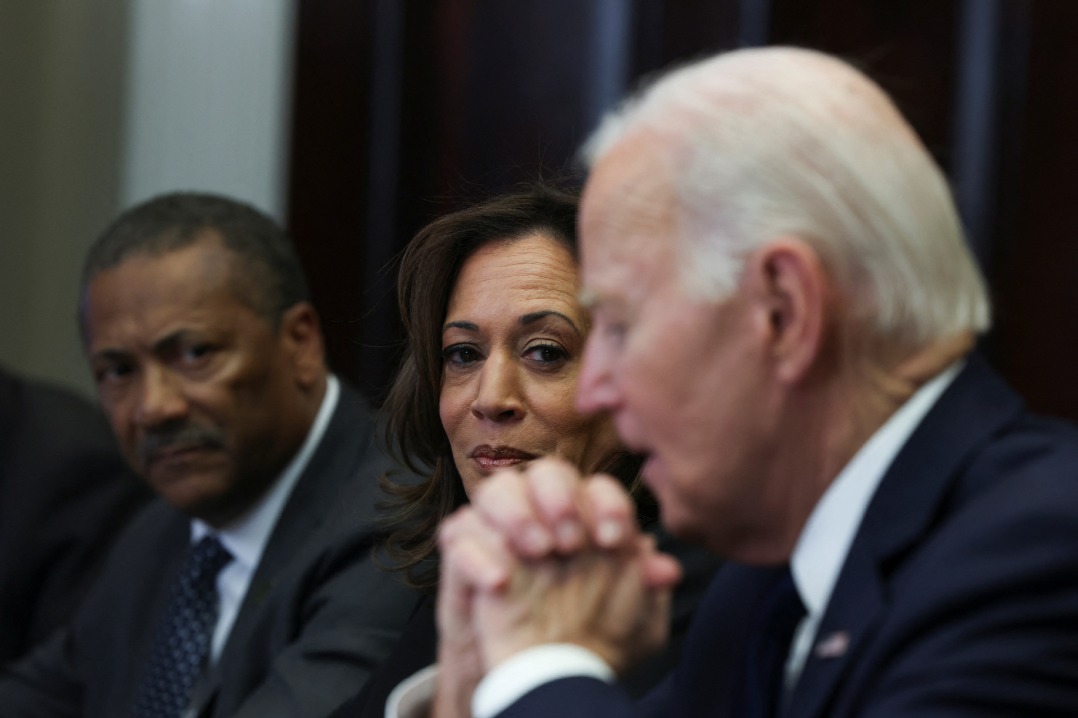China strengthens financial oversight to contain risks
Xinhua | Updated: 2017-07-25 16:22
BEIJING - Ten days after China decided to set up a new financial oversight body, regulators and industry sources have expressed support to the move to strengthen regulation.
The quinquennial national financial work conference, which ended on July 15, has decided a new financial stability and development committee will be set up under the State Council, with the central bank taking on a bigger role in managing financial-market risk.
As China grapples with multiple risks stemming from misallocated investment and shadow banking, decision makers are counting on tighter regulation to root out systemic risk in the financial sector.
The committee's office will be based at People's Bank of China (PBOC), the central bank, a PBOC official told Xinhua.
The committee's responsibilities include formulating development and reform plans for the financial sector, coordinating financial policies, ensuring regulatory cohesion, formulating rules to fill regulatory gaps, and holding regulators accountable when supervision is lacking, according to the official.
"Macro prudential management, coupled with prudent monetary policy will fundamentally ensure the real economy access to financial support and a stable run of the financial sector," the official said.
To this aim, China should unswervingly carry out prudent monetary policy, improve risk monitoring and early warning systems and shore up weak links in supervision, the official said.
Meanwhile, comprehensive coordination should be strengthened, corporate governance be pushed in financial institutions and financial reforms deepened.
The central bank and the country's banking, securities and insurance regulators received the message from the national financial work conference and lined up to express support.
The central bank said it would carry out its duties and strengthen coordination on financial supervision.
China's banking regulator vowed to regulate market chaos, including random leveraging and off-balance-sheet lending risks.
The securities regulator said it would push forward the development of a multi-tier capital market system and encourage direct financing, while the insurance regulator said it will work to defuse current risks and strictly contain new risks.
Chen Shaoxia, a researcher with Goldport Capital, stressed the importance of continuously perfecting "the rules of the game," saying that sophisticated regime and rules would lay the foundations for the healthy development of the financial market.
Given a fragmented and segmentary system could leave blind spots in supervision and lead to financial arbitrage, the introduction of the new committee will help improve the effectiveness of regulation and address regulation challenges brought by increasingly mixed financial services, according to Lian Ping, chief economist with the Bank of Communications.
Lian expects the financial stability and development committee to be an authoritative decision-making body rather than an advisory body, playing a complementary role with the central bank in terms of financial supervision.
Tighter regulation may bring pain to the financial market in the short term, but it could defuse accumulated risks and optimize allocation of financial resources in the long run, Chen said.
In addition to stronger risk controls, analysts believe the creation of the committee will mean further monetary tightening.
As expected, China said at a meeting Monday that it would implement a proactive fiscal policy and prudent monetary policy, with supply-side structural reform as the main theme in the latter half of the year.
Authorities will maintain the continuity and consistency of policies to guard against systemic financial risks, push forward supply-side structural reform and ensure stable and healthy economic development, according to the meeting of the Political Bureau of the Communist Party of China Central Committee.
The quinquennial national financial work conference, which ended on July 15, has decided a new financial stability and development committee will be set up under the State Council, with the central bank taking on a bigger role in managing financial-market risk.
As China grapples with multiple risks stemming from misallocated investment and shadow banking, decision makers are counting on tighter regulation to root out systemic risk in the financial sector.
The committee's office will be based at People's Bank of China (PBOC), the central bank, a PBOC official told Xinhua.
The committee's responsibilities include formulating development and reform plans for the financial sector, coordinating financial policies, ensuring regulatory cohesion, formulating rules to fill regulatory gaps, and holding regulators accountable when supervision is lacking, according to the official.
"Macro prudential management, coupled with prudent monetary policy will fundamentally ensure the real economy access to financial support and a stable run of the financial sector," the official said.
To this aim, China should unswervingly carry out prudent monetary policy, improve risk monitoring and early warning systems and shore up weak links in supervision, the official said.
Meanwhile, comprehensive coordination should be strengthened, corporate governance be pushed in financial institutions and financial reforms deepened.
The central bank and the country's banking, securities and insurance regulators received the message from the national financial work conference and lined up to express support.
The central bank said it would carry out its duties and strengthen coordination on financial supervision.
China's banking regulator vowed to regulate market chaos, including random leveraging and off-balance-sheet lending risks.
The securities regulator said it would push forward the development of a multi-tier capital market system and encourage direct financing, while the insurance regulator said it will work to defuse current risks and strictly contain new risks.
Chen Shaoxia, a researcher with Goldport Capital, stressed the importance of continuously perfecting "the rules of the game," saying that sophisticated regime and rules would lay the foundations for the healthy development of the financial market.
Given a fragmented and segmentary system could leave blind spots in supervision and lead to financial arbitrage, the introduction of the new committee will help improve the effectiveness of regulation and address regulation challenges brought by increasingly mixed financial services, according to Lian Ping, chief economist with the Bank of Communications.
Lian expects the financial stability and development committee to be an authoritative decision-making body rather than an advisory body, playing a complementary role with the central bank in terms of financial supervision.
Tighter regulation may bring pain to the financial market in the short term, but it could defuse accumulated risks and optimize allocation of financial resources in the long run, Chen said.
In addition to stronger risk controls, analysts believe the creation of the committee will mean further monetary tightening.
As expected, China said at a meeting Monday that it would implement a proactive fiscal policy and prudent monetary policy, with supply-side structural reform as the main theme in the latter half of the year.
Authorities will maintain the continuity and consistency of policies to guard against systemic financial risks, push forward supply-side structural reform and ensure stable and healthy economic development, according to the meeting of the Political Bureau of the Communist Party of China Central Committee.
Related Stories
Editor's Pick
























